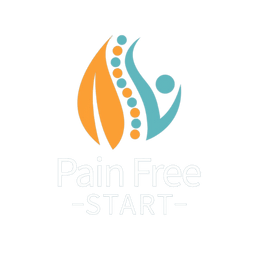Introduction
When you’re dealing with chronic pain or recovering from an injury, sleep can feel elusive. Yet, it’s during sleep that our bodies and minds perform their most vital healing work. Understanding the powerful connection between sleep, healing, and pain can inspire you to prioritise rest as part of your recovery. As a physiotherapist, I spend my days helping people with pain so the importance of this is all to apparent in my work. In this blog, I share tips on how to sleep better and explore why a good night’s sleep is one of the most essential ingredients in your journey to wellness.
“Sleep is the golden chain that binds health and our bodies together.” — Thomas Dekker
Why Sleep is Crucial for Healing
Sleep is more than just a time to rest; it’s when your body repairs itself on a cellular level. While you’re sleeping, your body works to:
- Regenerate Cells: Tissue repair and muscle growth occur during deep stages of sleep. This is particularly important if you’re recovering from an injury or managing a chronic condition like arthritis, fibromyalgia, CRPD, MS and chronic fatigue syndrome amongst many others.
- Reduce Inflammation: Sleep helps regulate the production of stress hormones that can contribute to inflammation. When you sleep, your body reduces levels of cortisol, promoting healing and decreasing pain.
- Boost Immune Function: The immune system ramps up during sleep, producing proteins and cells that help the body fight off infection and repair damage.
By getting enough rest, you give your body the opportunity to rebuild and heal from the inside out.
The Vicious Cycle of Pain and Poor Sleep
For those living with chronic pain, it can feel like a never-ending cycle—pain keeps you awake, and lack of sleep heightens your sensitivity to pain. This happens because sleep deprivation reduces your body’s ability to manage pain, making even small discomforts feel overwhelming. I’ve experienced this first-hand while living with chronic migraines. For me, sleep was such a key component and one I urge you to focus on.
“The best bridge between despair and hope is a good night’s sleep.” — E. Joseph Cossman
Breaking this cycle begins with understanding the role sleep plays in pain management. When you sleep, your brain has a chance to regulate pain signals and reset your nervous system, allowing you to better cope with discomfort during the day. Prioritising rest not only helps reduce pain but also improves your emotional resilience.
How to Sleep Better When You’re in Pain
Though it’s easier said than done, there are ways to improve sleep even when you’re in pain. Consider these strategies:
- Create a Comfortable Sleep Environment: Invest in supportive mattresses and pillows that reduce pressure on painful areas. Keep your room cool, dark, and quiet to enhance sleep quality.
- Incorporate Relaxation Techniques: Meditation, deep breathing, and gentle yoga can help calm your nervous system before bed, making it easier to fall asleep even with pain.
- Optimise Sleep Positions: Depending on where you feel discomfort, experiment with different sleeping positions. For example, back sleepers can place a pillow under their knees to align their spine and reduce joint strain.

The Emotional Benefits of Sleep
Beyond physical recovery, sleep is a cornerstone of mental and emotional healing. When you’re well-rested, you’re better able to manage the emotional toll of living with chronic pain, which can include feelings of frustration, sadness, or even hopelessness.
“Rest and self-care are so important. When you take time to replenish your spirit, it allows you to serve others from the overflow.” — Eleanor Brownn
Sleep gives your brain time to process emotions and regulate mood. It also improves your ability to handle stress and stay optimistic, making you more resilient in the face of pain. By focusing on sleep, you’re not just caring for your body—you’re also nurturing your mental health.
Inspiration for Resting Well
Sometimes, the simplest reminder can motivate us to take sleep more seriously. Here are a few inspiring thoughts to help you prioritise rest in your healing journey:
- On Sleep and Restoration: “Sleep is the foundation of healing; it’s where the body and mind find restoration.” When you prioritise sleep, you give your body the time it needs to repair and rejuvenate.
- On Pain and Patience: “When the body is in pain, let sleep be your ally, for it is in rest that the body finds strength to fight again.” Sleep can feel like a struggle when you’re in pain, but it’s one of your greatest allies in recovery.
Other Blogs You May Find Helpful
Mindfulness Techniques for Pain Management
The Mental Health Benefits of Walking: A Simple Step to a Happier Mind
15 Things to Give Up to Heal Your Body and Mind
Chronic Pain and Movement: Why Staying Active Helps
Overcoming Chronic Pain: Motivational Quotes to Keep Moving Forward
Conclusion
The connection between sleep, healing, and pain is undeniable. By making sleep a priority, you’re giving your body the best chance to heal, recover, and manage pain effectively. Whether you’re dealing with arthritis, recovering from surgery, or managing chronic discomfort, sleep is an essential part of your wellness toolkit. Take small steps to improve your sleep routine, and over time, you’ll notice a positive impact not just on your pain levels, but on your overall health and well-being.
“A good laugh and a long sleep are the best cures in the doctor’s book.” — Irish Proverb
Take care, Helen
Helen Manders BSc (Hons) MCSP HCPC
Chartered Physiotherapist Since 2001
P.S. Struggling with pain or injury? Find out how I can help. Just click here.




